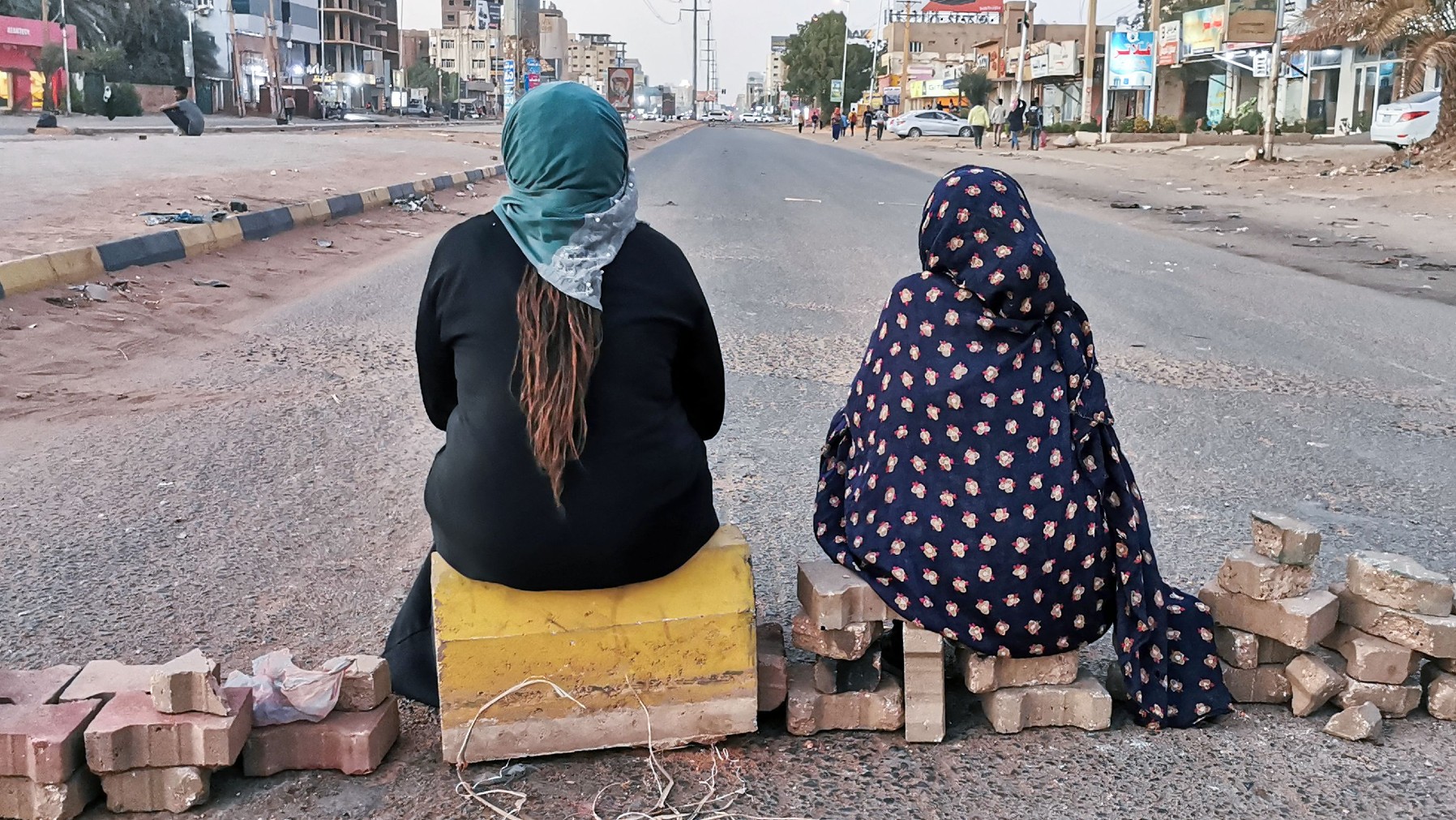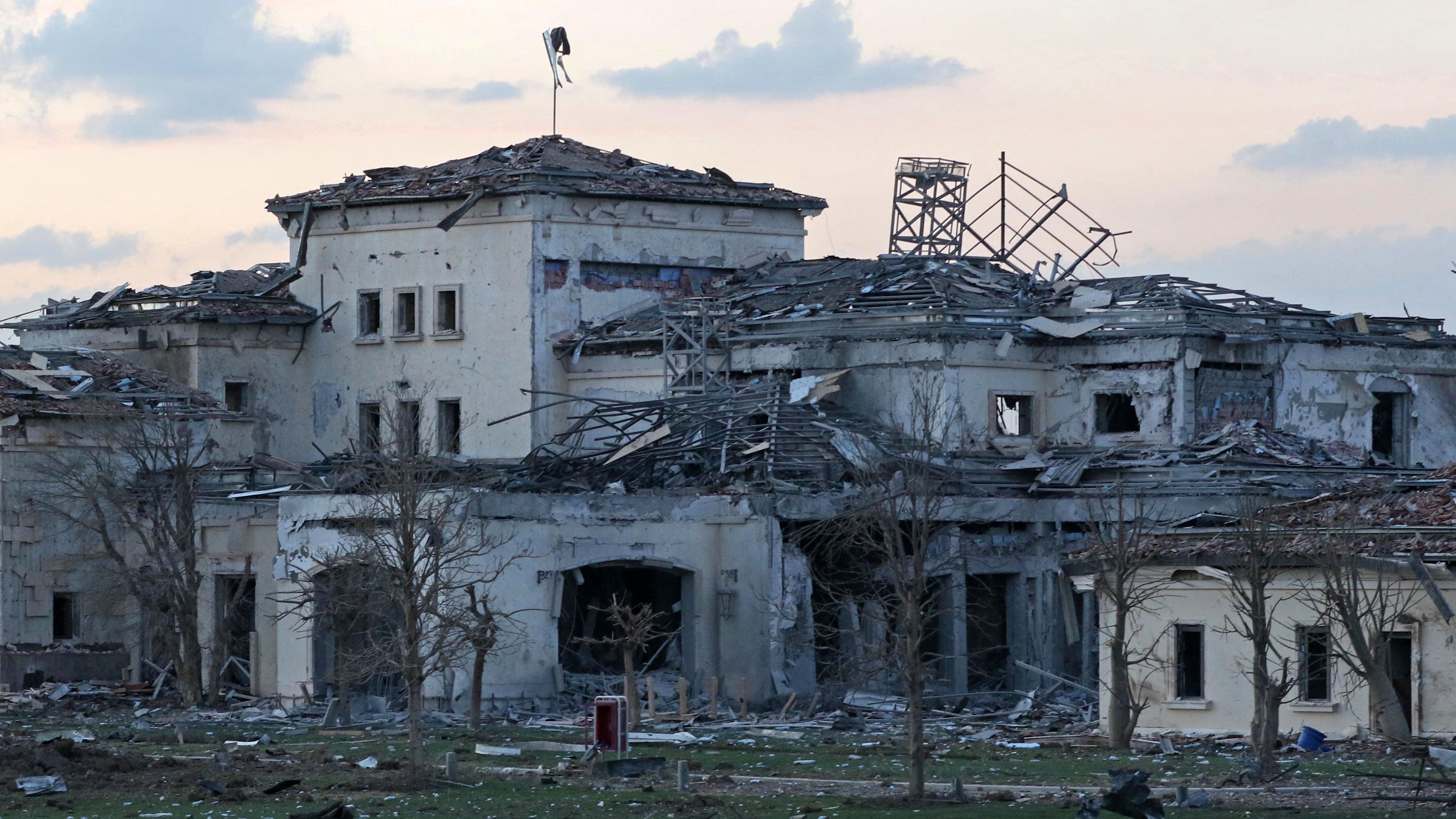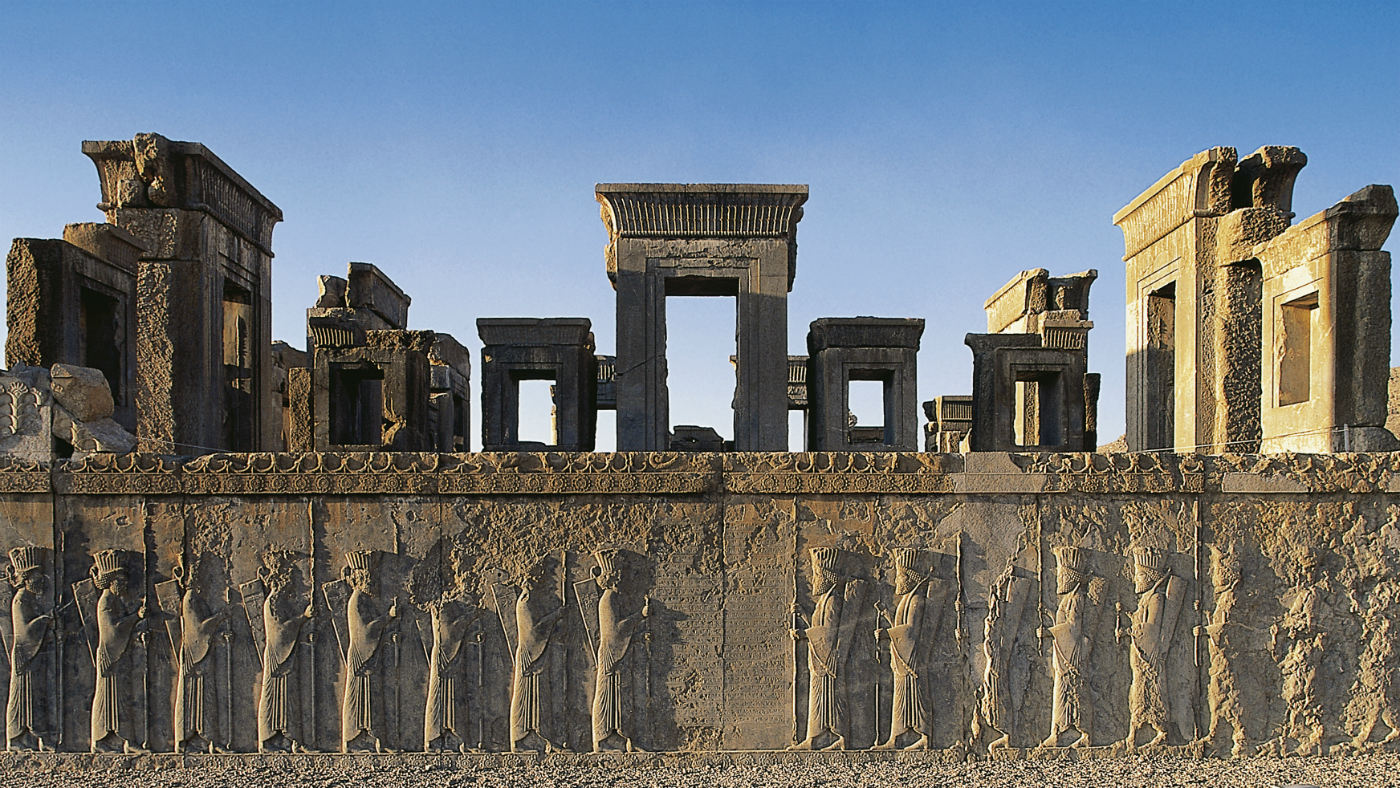The countries where men and women can be stoned to death
Sentencing to death by stoning of Sudanese 20-year-old sparks fresh outrage

A free daily email with the biggest news stories of the day – and the best features from TheWeek.com
You are now subscribed
Your newsletter sign-up was successful
A 20-year-old woman in Sudan has been sentenced to death by stoning for adultery, marking the first known case in the northeast African country for a decade.
Maryam Alsyed Tiyrab was found guilty of adultery by a court on 26 June and sentenced to death by stoning by the sharia judge. She says she was denied a lawyer and that the court didn’t obtain a police complaint before her trial began, the Daily Mirror reported.
Tiyrab is appealing the decision at Sudan’s High Court. Historically, the majority of stoning sentences – “which are predominantly against women” – are overturned, said The Guardian. This was the case in 2013, the last time a woman was sentenced to death by stoning for adultery in Sudan.
The Week
Escape your echo chamber. Get the facts behind the news, plus analysis from multiple perspectives.

Sign up for The Week's Free Newsletters
From our morning news briefing to a weekly Good News Newsletter, get the best of The Week delivered directly to your inbox.
From our morning news briefing to a weekly Good News Newsletter, get the best of The Week delivered directly to your inbox.
Human rights groups are calling for Tiyrab’s immediate release, with the Uganda-based African Centre for Justice and Peace Studies (ACJPS) describing the sentence as “a grave violation of international law”.
Campaigners are concerned that last year’s military coup “emboldened lawmakers to roll back small gains for women’s rights made under the country’s transitional government”, added the paper.
What is stoning?
Stoning is a form of capital punishment whereby rocks are thrown at a person until they die. It is an execution method rooted in “ancient Greece and in Judeo-Christian religious texts” but has “no explicit mention in the Quran”, according to NBC News.
It is relatively rare but still used in some Muslim parts of the world today, where it is considered a form of community justice for punishing those accused of crimes like adultery, prostitution, murder and blasphemy.
A free daily email with the biggest news stories of the day – and the best features from TheWeek.com
Those sentenced to stoning – or “lapidation” – under Islamic law are “buried in a hole and covered with soil”, said NBC. A selected group then throws rocks and sticks at the accused and those “able to escape the hole during stoning can be freed”. The size of the stones is specified by sharia law, added the broadcaster, “to ensure the execution does not take too long or occur too quickly”.
Where is stoning practised?
Iran has the world’s highest rate of execution by stoning and the Middle Eastern country regularly makes headlines for its employment of the practice, which came into force after the 1979 revolution. The Library of Congress believes that around 150 people were stoned to death in Iran between 1980 and 2009, although the reported numbers are probably lower than the actual figures.
In May, The Sun obtained classified records which revealed that Iran had sentenced 51 people to death by stoning for adultery, including 23 women.
Iran’s penal code specifically lays out that “the size of the stone used in stoning shall not be too large to kill the convict by one or two throws and at the same time shall not be too small to be called a stone”, added the paper.
Stoning has also made a resurgence in Afghanistan under Taliban rule. Earlier this year, reports suggested that a man and a woman had been stoned to death at a sharia court for having sexual relations outside of marriage.
In 2015, disturbing footage of a 19-year-old woman being stoned to death in a Taliban-controlled village went viral. The woman “had been forced to marry against her will” and had fled with another man before being caught and sentenced to stoning for adultery, said CNN.
Stoning is used in several northern states in Nigeria “to punish residents for crimes ranging from adultery to blasphemy”, said Reuters. Last month, an Islamic sharia court in Bauchi sentenced three men to death by stoning after charging them with engaging in homosexuality.
Several women in Nigeria have been sentenced to death by stoning but been let off, including Hajara Ibrahim, who was just 18 when she was convicted of adultery and sentenced to stoning in 2004. Her lawyer had argued that the ruling “was invalid because Hajara had not consummated her marriage before sleeping with her boyfriend and conceiving a child”, said Al Jazeera.
In recent years, members of Somalia’s Islamist group al-Shabaab have sought to bring back stoning as a punishment for violating sharia law. In 2017, a 30-year-old mother of eight was publicly stoned to death for cheating on her husband.
“Her legal husband brought the case to the court. She admitted she illegally married a second husband,” al-Shabaab’s governor for Somalia’s Jubba regions in the south told Reuters. “According to the Islamic sharia she was publicly stoned to death this afternoon.”
In 2019, five years after the country introduced sharia law, Brunei introduced strict new Islamic laws which made anal sex and adultery offences punishable by stoning to death.
The move “sparked international condemnation”, said the BBC. George Clooney, Ellen DeGeneres and other A-listers called for a boycott of the luxury hotels owned by the Brunei Investment Agency in response.
According to a report by Human Rights Without Frontiers International in 2012, several women have been sentenced to death by stoning in Pakistan, but none of the stonings have actually been carried out. The report added that cases of extrajudicial stoning have occurred “most commonly in areas under Taliban influence or rule on the border of Afghanistan”.
Earlier this year a mentally ill man was stoned to death by “an angry mob” in Punjab province after it was alleged that the victim had “burned some pages of the Qur’an”, said The Guardian.
Stoning has also occurred in Mali, where a couple who had sex outside marriage were stoned to death in 2012, and the United Arab Emirates, where several women have been sentenced to death by stoning after being accused of adultery.
It is a legal punishment in Qatar and Yemen, although it is believed that such sentences haven’t actually been used there.
Kate Samuelson is The Week's former newsletter editor. She was also a regular guest on award-winning podcast The Week Unwrapped. Kate's career as a journalist began on the MailOnline graduate training scheme, which involved stints as a reporter at the South West News Service's office in Cambridge and the Liverpool Echo. She moved from MailOnline to Time magazine's satellite office in London, where she covered current affairs and culture for both the print mag and website. Before joining The Week, Kate worked at ActionAid UK, where she led the planning and delivery of all content gathering trips, from Bangladesh to Brazil. She is passionate about women's rights and using her skills as a journalist to highlight underrepresented communities. Alongside her staff roles, Kate has written for various magazines and newspapers including Stylist, Metro.co.uk, The Guardian and the i news site. She is also the founder and editor of Cheapskate London, an award-winning weekly newsletter that curates the best free events with the aim of making the capital more accessible.
-
 The ‘ravenous’ demand for Cornish minerals
The ‘ravenous’ demand for Cornish mineralsUnder the Radar Growing need for critical minerals to power tech has intensified ‘appetite’ for lithium, which could be a ‘huge boon’ for local economy
-
 Why are election experts taking Trump’s midterm threats seriously?
Why are election experts taking Trump’s midterm threats seriously?IN THE SPOTLIGHT As the president muses about polling place deployments and a centralized electoral system aimed at one-party control, lawmakers are taking this administration at its word
-
 ‘Restaurateurs have become millionaires’
‘Restaurateurs have become millionaires’Instant Opinion Opinion, comment and editorials of the day
-
 The #MeToo movements around the world
The #MeToo movements around the worldThe Explainer French men have been sharing stories of abuse in the latest calling out of sexual assault and harassment
-
 Cost of living: is shoplifting on the rise?
Cost of living: is shoplifting on the rise?feature Stores tighten security as thefts of goods soars by 22% amid financial turmoil
-
 Iran implies Salman Rushdie is to blame for his own attack
Iran implies Salman Rushdie is to blame for his own attackSpeed Read
-
 What is cyberstalking?
What is cyberstalking?feature Fake social media accounts increasingly used by harassers to target victims
-
 Why Iran launched missile attack on Iraq
Why Iran launched missile attack on Iraqfeature Strike near US consulate risks ‘sabotaging’ nuclear deal negotiations
-
 Has Donald Trump threatened to commit war crimes against Iran?
Has Donald Trump threatened to commit war crimes against Iran?In Depth Experts say US president’s threatened plan to target cultural sites would violate international law
-
 Iran declares all US troops in Middle East ‘terrorists’
Iran declares all US troops in Middle East ‘terrorists’Speed Read New law comes after Donald Trump classifies Iran’s Revolutionary Guard as a terrorist organisation